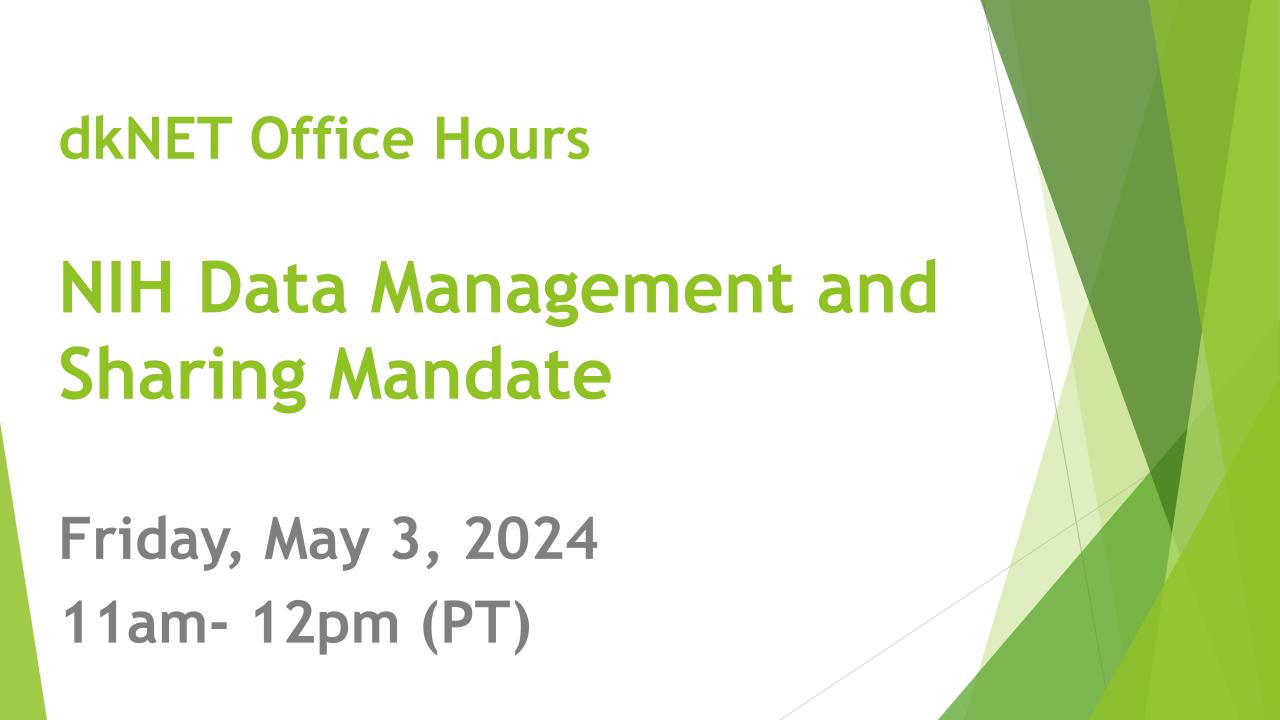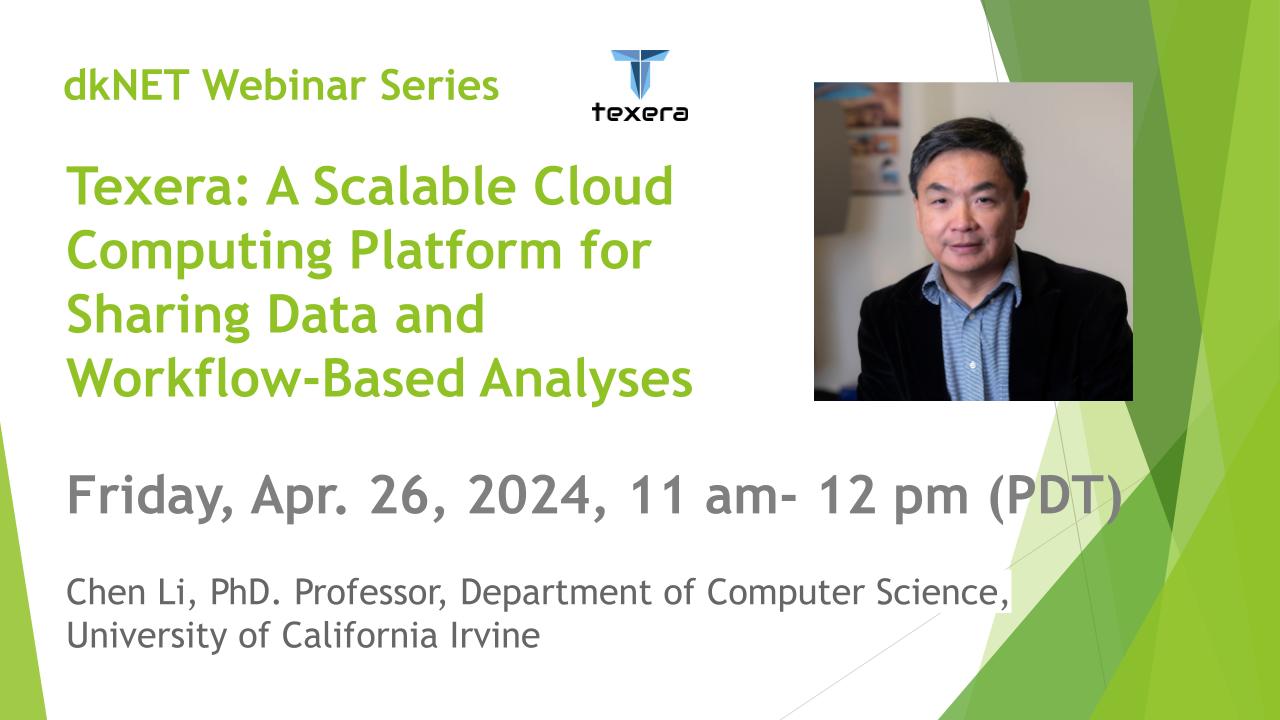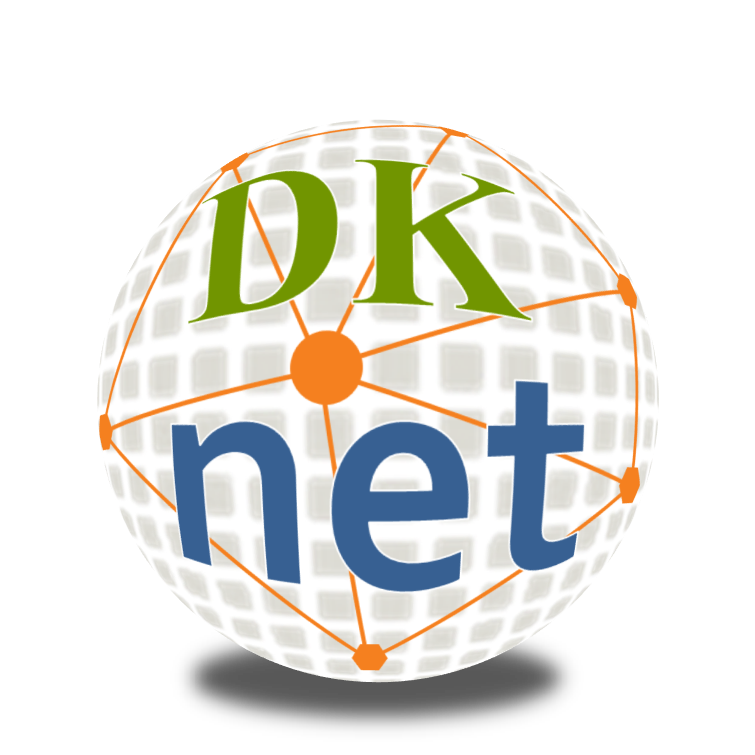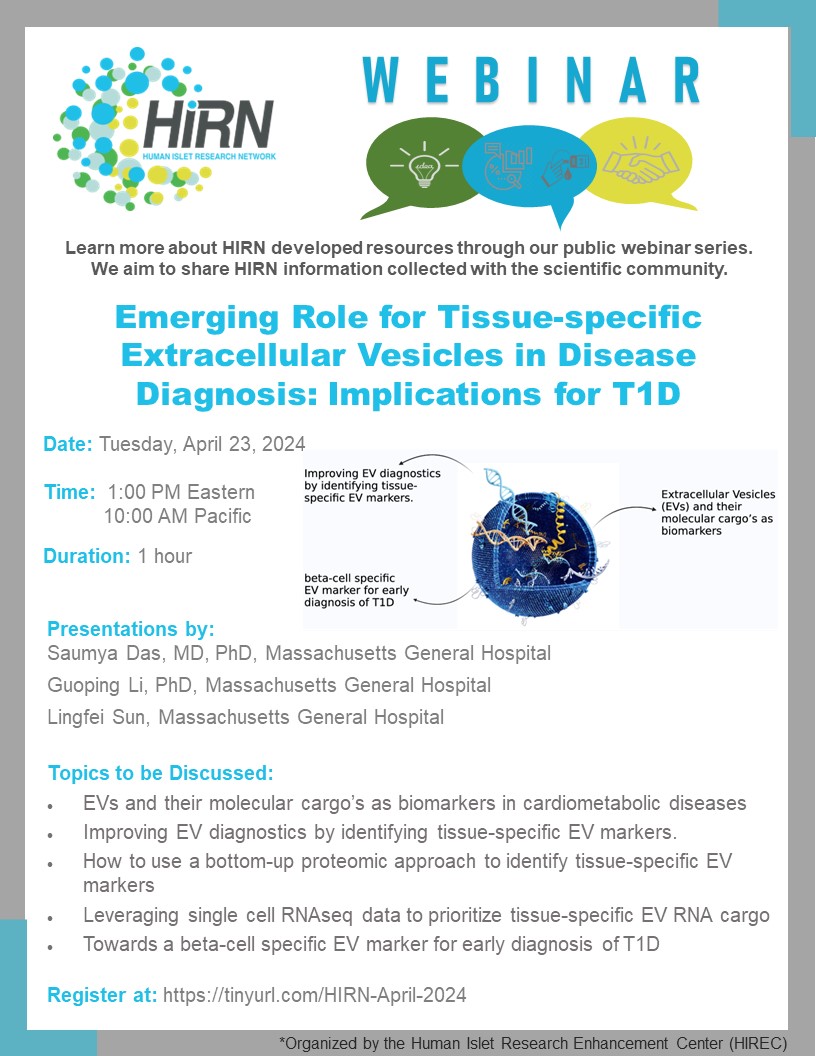Leaving Community
Are you sure you want to leave this community? Leaving the community will revoke any permissions you have been granted in this community.
dkNET community events and announcements in April, 2017
Dear dkNET Community,
dkNET provides updates on activities of interest to the NIDDK-supported community. You could keep up to date on these activities through our Twitter feed @dkNET_info, through our Community Calendar, or through dkNET e-mail list. If you have an event or funding opportunities you'd like to advertise, please contact us info_at_dknet.org.
Events in April, 2017
Apr. 1-4, 2017
ENDO2017
ENDO 2017 is the world’s premier event for presenting and obtaining the latest in endocrine science and medicine. With an extensive program covering a broad array of topics, various networking opportunities, poster sessions, continuing medical information, updates on new products and technologies at the ENDOExpo, keynote speakers, and more, attendance at ENDO is a “must-attend” event. Come join 7,500 of your colleagues for an educational experience that will enhance your professional development, improve your work, build your reputation, and shape the future of the field.
dkNET team will attend ENDO 2017 Annual Meeting on April 1-4, 2017 in Orlando, Florida. If you also plan to attend ENDO 2017, come meet us at the conference to learn more about what dkNET can help you with your research!
Date/Time/Location
- April 1-3, 2017 10:30am-4:00pm, ENDOExpo booth 1253
- April 1, 2017, 1:20pm- 1:40pm, Lecture: Accessing and Mining Big Data: dkNET and the Digital Ecosystem, presented by Dr. Jeffrey Grethe, OCCC-W207 (1:00 pm - 2:00pm, presented by bioCADDIE, dkNET, and NURSA)
- April 1, 2017, 2:00pm-3:00pm, dkNET hands-on workshop, OCCC-W208A
- April 2, 2017, 12:00pm-12:45pm, Lecture: Registering research Resources for rigor and Reproducibility, presented by Dr. Maryann Martone and Dr. Anita Bandrowski, OCCC-W303
- April 2, 2017, 1:00pm-3:00pm, Poster SUN274, The NIDDK Information Network (dkNET) - A Community Resource and Information Portal That Promotes and Enhances Scientific Rigor and Reproducibility, presented by Dr. Ko-Wei Lin, OCCC-West Hall B
- April 2, 2017, 2:04pm-2:08pm, Scientific Hub presentation, OCCC-West Hall booth 611.
Don't forget to join dkNET-NURSA challenge to win $500 cash or a $50 gift card! https://dknet.org/about/dknet-nursa-challenge
Location: Orlando, FL
More information: https://www.endocrine.org/endo-2017
Apr. 1, 2017
Abstract Submission Deadline: 53rd Annual Meeting of the European Association for the Study of Diabetes
The EASD Annual Meeting will take place in the Parque das Nações, at the International Fair of Lisbon (FIL), a former industrial zone, it was entirely rebuilt for Expo 98 with excellent access to downtown and the airport. The sessions will take place at the FIL and in the adjacent MEO Arena with the meeting starting with Symposia on 11 September and the Opening Session on the morning of Tuesday, 12 September. Always a rewarding meeting, with opportunities to make new contacts, meet old friends and stimulate creative exchange, we look forward to welcoming you in September 2017 for the 53rd EASD Annual Meeting in Lisbon.
Location: Lisbon
More information: https://www.easd.org/annual-meeting/easd-2017.html#section-welcome
Apr. 14, 2017
The BD2K Guide to the Fundamentals of Data Science Series: Open Science
Speaker: Brian Nosek, University of Virginia
More information: http://www.bigdatau.org/data-science-seminars
Apr. 21, 2017
The BD2K Guide to the Fundamentals of Data Science Series: Data Sharing & Social
Speaker: Christine Borgman & Irene pasquetto, UCLA
More information: http://www.bigdatau.org/data-science-seminars
Apr. 26-28, 2017
NMRI 15th Annual Workshop
More than 300 researchers have participated in NMRI workshops in the past decade, and approximately 100 are active members. The success of the NMRI, a network that is “owned” by its members and supported by the NIDDK, begins with the dedication of senior investigators who mentor and serve as role models for junior investigators. The participation of active members and the recruitment of new members is a primary reason for the Network’s success in the past and the reason for confidence that it will continue to grow in the future.
More information: http://www.niddk.nih.gov/news/events-calendar/Pages/nmri-15th-annual-workshop-04-2017.aspx
Apr. 27, 2017
JAX Webinar: CRISPR/Cas9 - Moving from Founder Mice to Phenotyping
CRISPR/Cas9 techniques are quickly growing in popularity for the generation of new mouse models for research. Though the approach is relatively simple, many researchers struggle with understanding the complexities associated with the diverse alleles that can be generated, how to deal with mosaicism, and how to move from a single founder mouse to larger cohorts for phenotype characterizatio
More information: https://www.jax.org/education-and-learning/education-calendar/webinars/2017/042017/crispr-apr-27
Apr. 28, 2017
The BD2K Guide to the Fundamentals of Data Science Series: Ethical Issues
Speaker: Bartha Knoppers, McGill University
More information: http://www.bigdatau.org/data-science-seminars
Funding opportunities information and deadlines in April, 2017
Apr. 3, 2017
Funding Opportunity Application Due Date: Stimulating Peripheral Activity to Relieve Conditions (SPARC): Foundational Peripheral Neuroanatomy and Functional Neurobiology in Under-Studied Organs (U01)
This NIH Funding Opportunity Announcement (FOA) is part of the Stimulating Peripheral Activity to Relieve Conditions (SPARC) Common Fund program. This FOA solicits applications for support of research to gather critical data and answer critical questions on functional peripheral neuroanatomy of organs and reveal the organ function controlled by neural circuits. Organs of interest include those where the peripheral neuroanatomy and functional neurobiology of the organ have been understudied, and which are not the subject of existing SPARC funding under RFA-RM-15-018.
More information: https://grants.nih.gov/grants/guide/rfa-files/RFA-RM-17-003.html
Apr. 5 , 2017
Funding Opportunity Application Due Date: Development of Highly Innovative Tools and Technology for Analysis of Single Cells (SBIR) (R43/R44)
This funding opportunity announcement (FOA) encourages Small Business Innovation Research (SBIR) grant applications from small business concerns (SBCs) to develop and validate next-generation single cell analysis technologies and tools. The purpose is to foster the commercializati
More information: https://grants.nih.gov/grants/guide/pa-files/PA-17-147.html
Apr. 5, 2017
Funding Opportunity Application Due Date: Development of Highly Innovative Tools and Technology for Analysis of Single Cells (STTR) (R41/R42)
This funding opportunity announcement (FOA) encourages Small Business Technology Transfer Research (STTR) grant applications from small business concerns (SBCs) to develop and validate next-generation single cell analysis technologies and tools. The purpose is to foster the commercializati
More information: https://grants.nih.gov/grants/guide/pa-files/PA-17-148.html
Apr. 17, 2017
Funding Opportunity Application Due Date: The Chan Zuckerberg Initiative Pilot Projects for a Human Cell Atlas
The goal of the International Human Cell Atlas project is to create a reference atlas of all cells in the healthy human body as a resource for studies of health and disease. As part of this effort, the Chan Zuckerberg Initiative seeks applications to support the Human Cell Atlas community’s convergence around standards, protocols, and best practices for the creation of a freely and openly available reference database of healthy human cells and tissues. We expect the reference Cell Atlas to ultimately include a variety of data types, including single-cell RNA sequencing, in situ hybridization imaging, proteomics, metabolomics, epigenetic information, low- and high-resolution images of biological samples, and more. For the initial phases of the project, we are especially interested in groups that can help evaluate protocols and best practices for the collection of single-cell molecular data, ideally by directly comparing multiple approaches to tissue preparation, data generation, or data analysis.
More information: https://chanzuckerberg.com/initiatives/rfa





